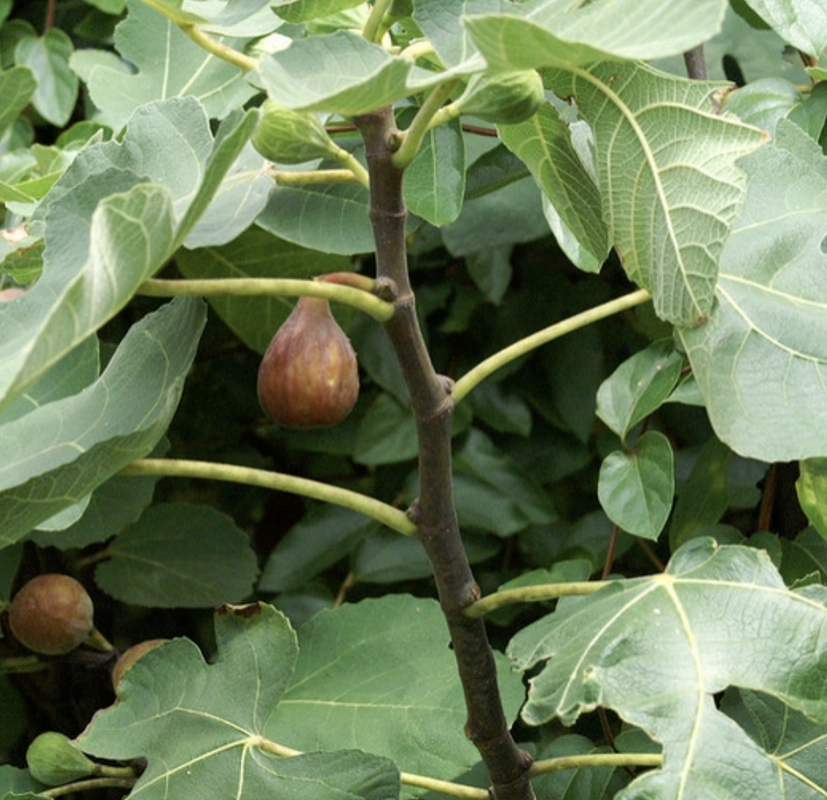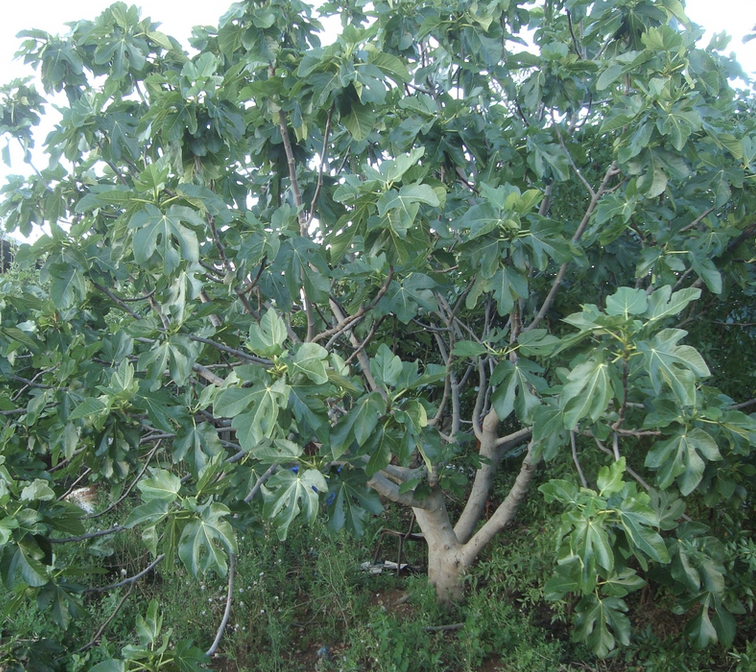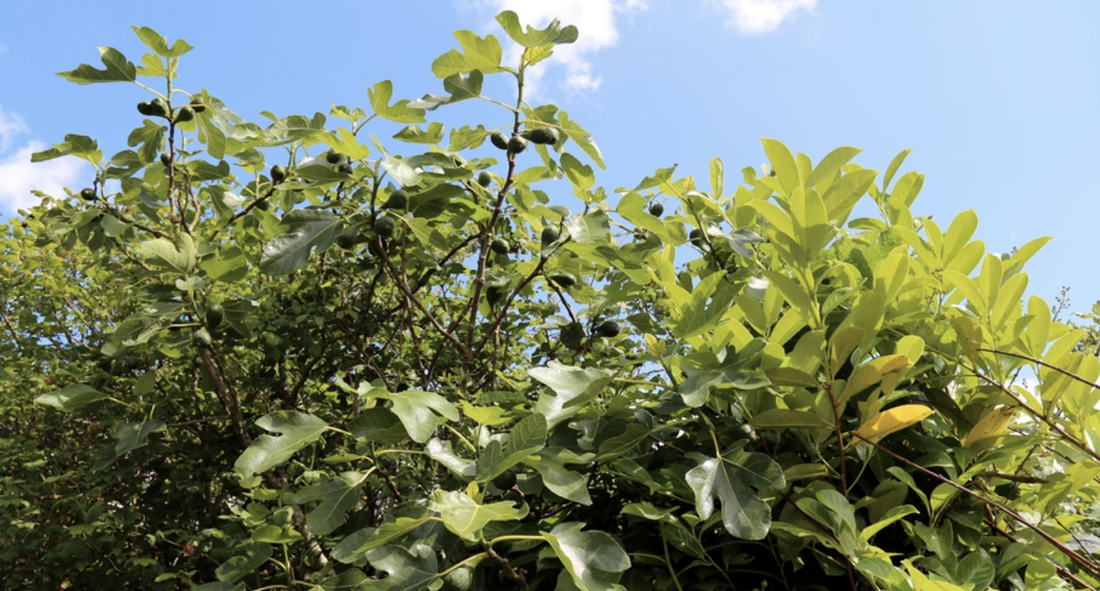|
Figs are unique among fruits grown in North Carolina. Unlike most fruit, in which the edible portion is matured ovary tissue derived directly from flowers, fig fruits are inverted flowers surrounded entirely by stem tissue. Mature figs contain only the remnants of flowers and unfertilized ovaries. Beyond this biological curiosity, there are some other things to know that making growing figs different than other fruit producing plants.
There are some other reasons why figs might underperform, however, other than just poor varieties, figs generally don’t need a lot of fertilizer. A good rule of thumb is to use a pound of 10-10-10 per year of age or foot of height (no more than 15 pounds) in the spring. However, if your figs are putting out more than a foot of new growth each year, this much growth will prevent the figs from fruiting heavily and will make them more likely to be damaged in the winter.
damaged, or old branches. Pruning at the wrong time can negatively affect fruit production. Site selection is important. Figs are not particular as to soil type, but they do require good drainage. It is important to plant a fig in a protected site for winter protection. Planting them out in the open makes it more likely they’ll be damaged by cold.
may fall prematurely, however, if the figs have been over fertilized, are in heavy shade, were damaged during winter, are under drought stress, or soil drainage is poor.
Cold winters can be difficult for figs. Although it doesn’t happen every year, if we have a day or two in winter that dip into the single digits, some figs may die back to the ground. While figs have a hardy root system and produce new shoots from the ground, the above ground growth is susceptible to damage below 10 degrees. Should this happen to your fig, it will survive, but more aggressive pruning will be necessary to help it recuperate. Matthew Stevens is the County Extension Director and Horticulture Agent for North Carolina Cooperative Extension’s Pitt County Center. If you have questions about this article or gardening in general, please contact the Pitt County Extension Master Gardener Infoline at 252-902-1705.
0 Comments
Leave a Reply. |
Matt Stevens
Pitt County Extension Director & Horticulture Agent Archives
July 2024
Categories |



 RSS Feed
RSS Feed